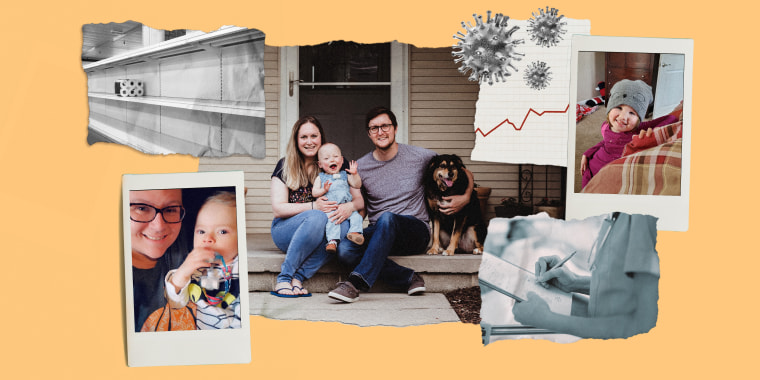Caring for 2-year-old Lily Wolff means round the clock home care, constant checks of medical equipment, and frequent consultations with doctors. This year, the coronavirus pandemic has made those already overwhelming concerns even more daunting.
Lily has was born extremely prematurely at 24 weeks gestation and stayed in the neonatal intensive care unit for eight months. The micro-preemie spent months on a ventilator, which left her lungs permanently scarred. Mom Jessica Wolff said any exposure to COVID-19, which primarily affects the respiratory system, could be deadly for her immunocompromised daughter.
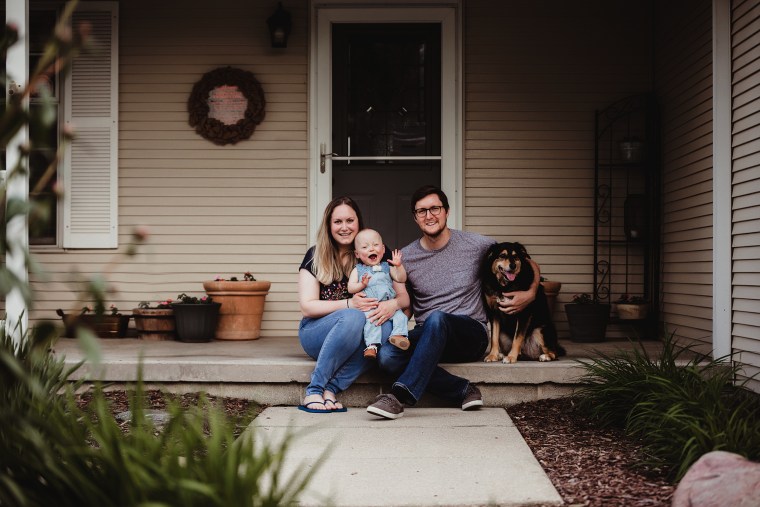
It’s not just exposure to the disease, which is infecting nearly 200,000 Americans daily. Wolff said she worries about lack of access to hospital care — hospitals across the country are overwhelmed, with hospitalizations due to COVID-19 reaching record highs — and she's concerned about the medical supply chain, which she relies on to get the equipment needed to keep Lily alive.
"We are doing absolutely everything we can to keep Lily safe and to limit exposure, but we are concerned about the 800 other things that can go wrong on a normal day for her," Wolff explained. "What if we change out her trach tube and can't get it back in? What if it falls out and needs to be surgically replaced? All of those things that would take us to the emergency room or hospital are an all day, every day concern."
Download the TODAY app for the latest coverage on the coronavirus outbreak.
Concerns about accessing medical care
The Wolff family is not the only one grappling with these concerns. In 2017, U.S. News & World Report estimated that 3 million children in the United States are considered medically fragile or medically complex, meaning they have ongoing, serious medical issues that can require hospitalization or frequent care.
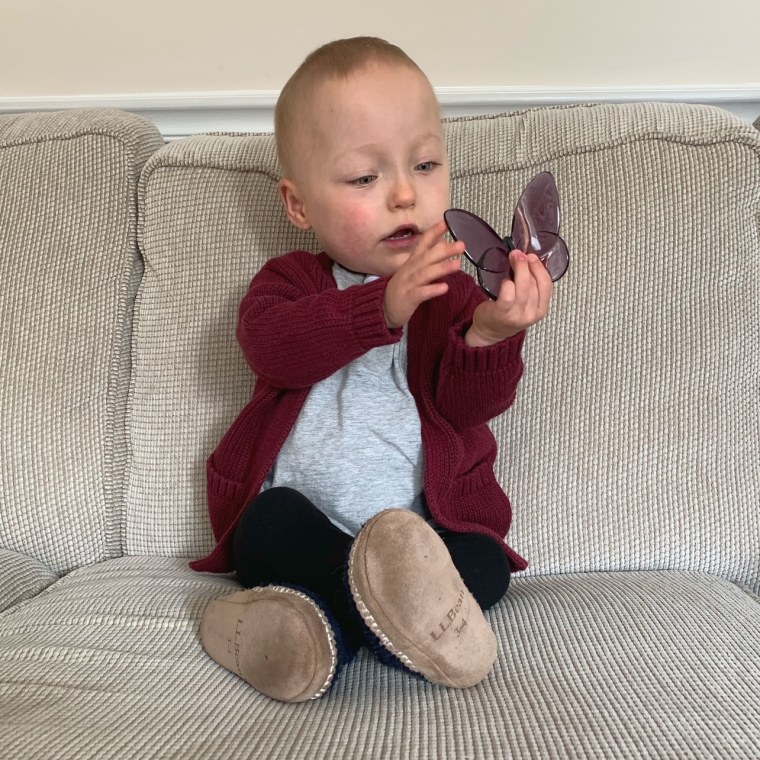
In a pandemic, the ability to access that care can be compromised. As COVID-19 cases fill hospitals to capacity and push nurses and doctors to their breaking points, parents fear that the system won't have space for their kids.
"We have no local hospital that can treat Liam, and I know the St. Louis hospital we go to was 80% full as of yesterday," said Amy Rhoades, whose son Liam was born at 25 weeks and has health issues similar to Lily Wolff's. He uses a ventilator to help him breathe at night.
"When he had rhinovirus, which is just a simple cold, he had to be life-flighted (to the hospital)," Rhoades said. "It was a very scary time. So I think about that, and I think about COVID. That's my biggest fear."
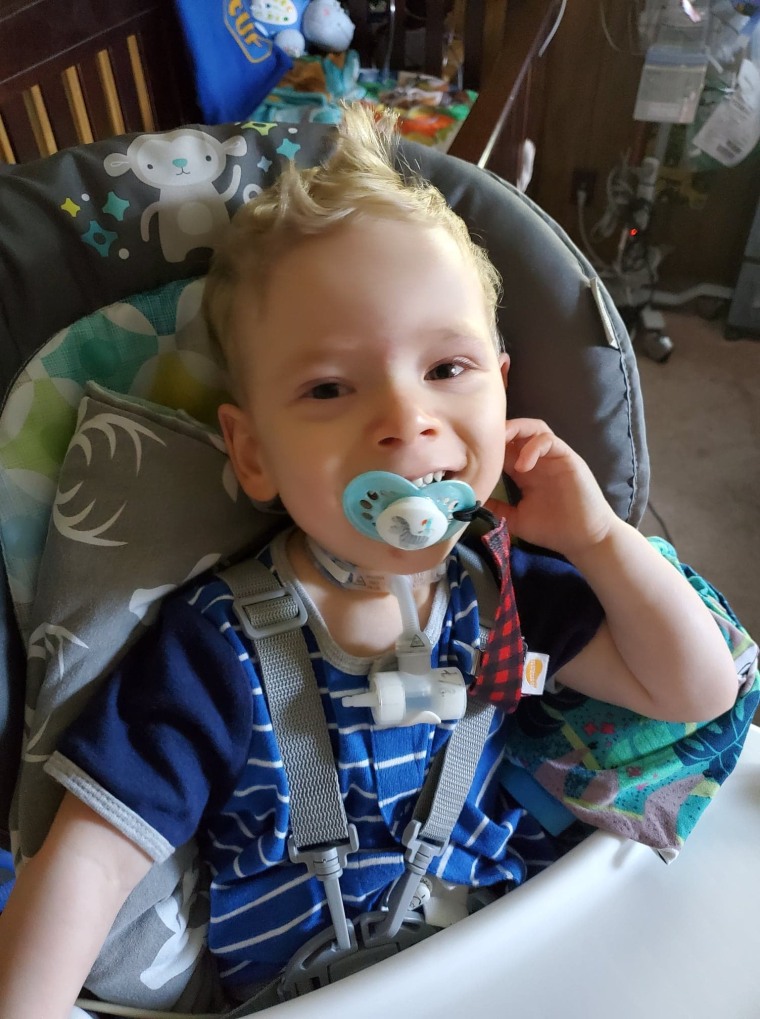
Wolff said that if Lily was to require hospitalization, she likely would need to be air-lifted to a children's hospital to get the care she needs, but concerns about COVID spread and contamination might mean that her parents wouldn't be able to sit by her bedside.
"If she has to go in, we can't go with her," Wolff predicted.
Medical necessities diverted or on back order
Both Liam and Lily rely on complex medical tools like ventilators, tubing and tracheal tubes to stay alive, but their parents are concerned that rising coronavirus cases could leave those supplies inaccessible to them.
Wolff said her most recent delivery of supplies, which she received on Nov. 20, had some changes.
"We received different ventilator circuits, which are not specifically made for her ventilator. They seem to be a generic one-size-fits-all," Wolff said. "It's definitely not ideal, but circuits for her ventilator are being diverted to hospitals."
Since March 2020, Rhoades has had difficulty getting what she needs, including simple things like thermometers and distilled water.
"Stores were limiting the distilled water, and I actually had to get a note from the doctor to show them that I had a medically frail child. It was insane," Rhoades explained. "Now, a lot of times they have had back orders on the tubing that goes to his ventilator, so we have to be very cautious and try to make sure all of our equipment is up to snuff and if we have to keep the tubing longer we have to make sure it stays good."
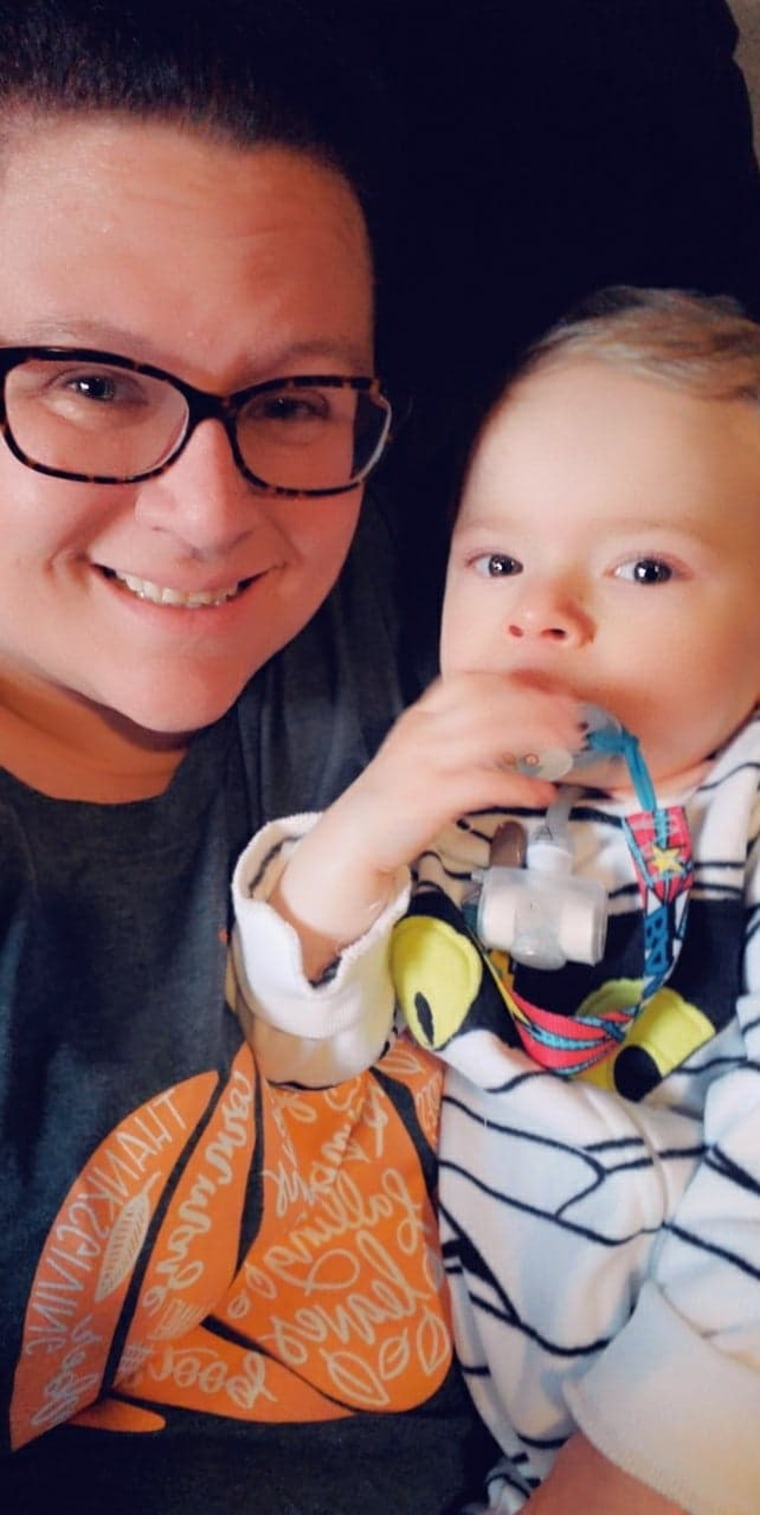
Wolff said she's been warned to anticipate further complications.
"We were told to expect other items to either be back-ordered or replaced with suboptimal interim supples in the coming months," she said. "I'm thankful that we have something, but we'd rather know that we're getting what we need on a monthly basis."
Extreme isolation takes a toll
Since the situation is so dire and the risk so high, many families of medically complex children have been incredibly isolated for the past nine months.
Wolff said that in addition to not seeing family or friends, she and her husband stopped using trained nurses for Lily's round-the-clock care and now tend to everything themselves.
"We canceled our nursing altogether, so everything has just fallen on my husband and I ... We would love to have our nurses back. I'm freaking exhausted," she said. "We really just shut everybody out. ... We have 100% of everything delivered to our house and we literally just don't leave."
Tiffany Belt, a mom in Florida whose youngest daughter has hypertonic cerebral palsy and is considered high-risk, said she has become more hesitant to go outside as cases in her area have spiked.
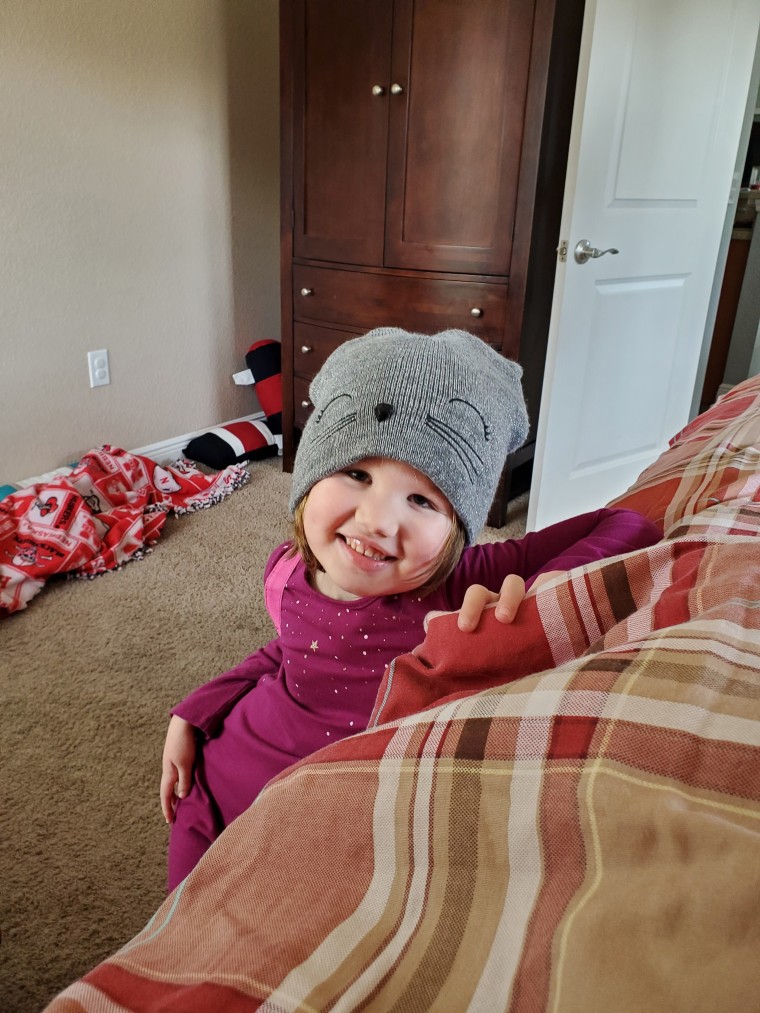
"It's getting bad again, and people could care less," said Belt, who noted that both her daughters have been doing virtual learning this year. "It makes me even more apprehensive when I have to take my daughter out. I'm social distancing, but some people just don't care. ... My older daughter hasn't been able to see any friends, even the ones who live a street or two away, at all."
Wolff said the approaching holidays make the isolation even more difficult.
"We have not had a large family gathering in two years," she said. "Most of our families have not met Lily, which is sad, but it's what we have to do to keep her safe."
Frustration with the politicization of the pandemic
All three mothers said they live in areas where mask-wearing and social distancing are sporadic at best. It's an extra hurdle to overcome.
"We can't even feel comfortable going to Walgreens to quickly grab something because there are a ton of people who are not masked," Wolff said. "It's difficult."
"There are of course the people that just don't get it, and are being rebels and saying, 'This isn't real,'" Rhoades said. "No, it is real. It's very real if you look at the numbers."
Rhoades added that the current spike in cases and the response to it has her more concerned about the pandemic than ever before.
"I was listening to the officials (in the spring) who said that we were going to spike and then it would go down, level out, and not be as bad," she said. "I did not think this second surge would be this bad. It's crazy to see that it's worse than it was in March, and it's scary."
Watch TODAY All Day! Get the best news, information and inspiration from TODAY, all day long.
Related video:
